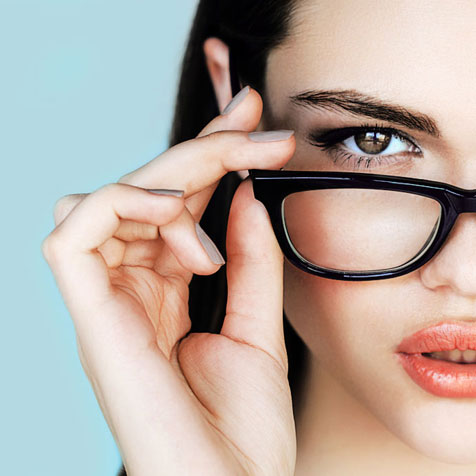Sport & Sunwear

If you play sports, you should keep two things in mind related to your vision: protection and precision.
Sports lenses protect the wearer’s eyes. Sports such as tennis, baseball, softball, and racquetball may see ball speeds of 90 mph or more. In baseball alone, there are over 500,000 injuries per year! But that is not the most common cause of sports-related eye injuries. Most eye injuries occur in basketball, where an elbow or a finger jabbed into the eye can cause corneal abrasions, fractured bones, retinal detachments, or even blindness. Polycarbonate lenses are more resistant to impact than glass or plastic and offer protection for 90% of eye injuries. Protective eyewear fits well, features a padded bridge, has prescription or non-prescription lenses, and has deep-grooved eyewires to prevent the lens from falling out.
The specialized lenses also optimize your vision. Depending on your sport, certain lenses are more appropriate than others. Dark, UV protection lenses are great for baseball and other outdoor sports. Golfers can benefit from gray-brown colored lenses which make it easier to outline the course. Even if you do not normally wear glasses, non-prescription sports lenses can benefit your performance. Some people think that lenses prevent the wearer from seeing the action, but many sports lenses have anti-fog, glare reduction, and scratch resistant properties. Some are also designed to maximize peripheral vision.

Here at the Eye Care Center, protecting your eyes from harmful UV light rays is a top priority. Eye conditions resulting from sunlight exposure may cause irreversible damage to the back of your eye (called your retina), and it can even cause early cataract formation, which requires surgery.
To reduce exposure to UV rays and their effects, we recommend you invest in a set of sunglasses which can provide at least 98% protection from UVA and UVB rays. While cheaper sunglasses can range from poor to excellent UV protection, our sunwear lines provide the best protection from the sun. At Eye Care Center, we carry College Station’s largest selection of styles and colors.
Our doctors specialize in fitting prescription sunglasses that not only protect your eyes from harmful UV light, but also allow you to stay updated with the latest fashion trends. Polarized lenses are recommended for optimum outdoor vision. For years, boaters and fishermen have used polarized sunglasses to reduce reflected glare from the water surrounding them. But now that many others who spend time outdoors have discovered the benefits of polarized lenses, the popularity of these types of sunglasses has soared.
Besides boaters, outdoor enthusiasts who benefit the most from polarized sunglasses include skiers, golfers, bikers, and joggers, who enjoy a clearer view along with elimination of glare. Polarized sunglasses can also be used indoors by light-sensitive people, including post-cataract surgery patients and those continually exposed to bright light through windows.
Light reflected from surfaces like a flat road or smooth water is generally horizontally polarized. The vertically oriented polarizers in the lenses block this horizontally polarized light.
The result: a reduction in annoying and sometimes dangerous glare.
There is some debate on the effects of polarized lenses on snow-covered surfaces. Some experts say they can reduce the intense glare that is caused by sunlight reflecting off snow. Others report that the lenses are not satisfactory for sports such as downhill skiing because they may not provide the contrast the eye needs to distinguish ice patches or moguls.
In addition, polarized lenses may also react adversely with liquid crystal displays (LCDs) found on the dashboards of some cars or in other places such as the digital screens on automatic teller (bank) machines. The problem with LCDs is that when viewed through polarized lenses from a certain angle, they can be invisible.
Finally, if you have a youngster in the family, it is never too early to fit them with sunglasses. Children under the age of 20 are the most susceptible to the damaging effects of UV light. One concern of parents is that their child will scratch, break, or lose the sunglasses; we are here to help you make the best choice for your child.























